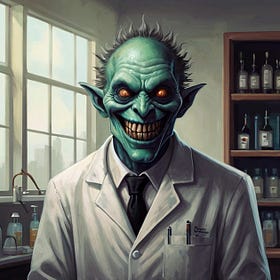Do you have an idea? Is it a good idea? Have you laboured long and hard to understand your customer and their needs? Have you accurately described the problem that you are solving? Does your idea solve this problem well? Is your idea the best solution to this problem?
How many other solutions might achieve the same end? Or does your idea exhibit a hidden and fatal flaw that will kill your concept stone dead?
If so, would you like to know?
There is plenty of advice out there in the world that could help you to determine if your business proposal is solid gold or hopeless fantasy. Entire TV shows are based around this analysis, and viewers seem to enjoy watching some poor founder get torn to pieces by the sharks, dragons or other business predator.
But what about that period of development before you wrap a viable business around a problem and a solution? What about the practical aspects of your idea? Does this idea offer the intended utility to your imagined customer? Is this idea the best solution to be discovered? Does this idea resolve all of the contradictions? If it doesn’t, does your idea at least make good compromises to realise a good solution?
Would you really want to know if your idea is actually a bit shit?
Would you like to know this well before you invest too much time, effort and resources?
I am a rocket scientist, and to assess innovative concepts is a task that I commonly exercise in my professional capacity, and I do so in a large and well resourced corporation.
Often, I am assessing my own wild ideas. Many of them hide these hidden flaws. Sometimes, I am dismantling the ideas of others, to identify the weaknesses. I reckon I do okay, and this is likely because it’s far easier to detect a bad idea than to spot a winner. I am fairly sure that I can spot a bad idea and can explain precisely where the idea is weak.
And I do take care. My own ideas are no less likely to posess a hidden flaw than any other. I know what it’s like to work hard on an idea and be pleased with the result, only to see it burned to the ground in mere minutes.
The team have learned how to critique ideas, without critiquing the creators. We have learned how to disagree well, and to leave one another with some dignity. We can create a cross examination without confrontation. A critique for the greater good. Criticism that hopes to elevate the idea and the ideator. To suffer now with friends so that we avoid suffering later before a sceptical and hostile audience.
I have been doing this for years, and am now possessed by a new question.
Out in the wider world, beyond the boundaries of my corporate role, there is a sea of independent thinkers with the guts and the passion to go it alone. To take the risk. To build their own business.
I have a great deal of respect for those who take this plunge, and I do wonder if any of my skills and experiences might actually help?
If someone has had a great idea, do they really want it picked apart before their eyes? If someone was consumed by an elegant idea with a fatal flaw, do they really want to know?
I had long assumed that Venture Capital firms must surely make this assessment before offering ludicrous piles of cash to exciting new ideas. Whilst the business gurus ran the numbers, I assumed that some technical type in the back room will take a look at the solution to determine if it resolves the target problem.
The hired junky, who tests the merchandise before a sale.
I was curious, so took the time to ask them, only to find that those I asked don’t assess the idea at all, just the founders themselves.
So, there’s my own problem, laid out before you.
Do those building elegant solutions to intractable problems see any advantage in an independent assessment?
Do I have an offer?
I have no idea, yet.
You tell me.
Innovation Monster
I seem to have a bit of a reputation. I hear plenty of pitches for wild ideas that may solve intractable problems. When I do, I will have questions. I always have questions. This is when people get nervous, because I may be about to tear their idea to pieces.
The sad, sad inventor
People love to have great ideas. The pleasure of solving a difficult problem with a clever idea can be addictive. The human mind is built for this, and will seek out that pleasure where it can. If it wasn’t, an entire industry of puzzle makers would be out of business.




